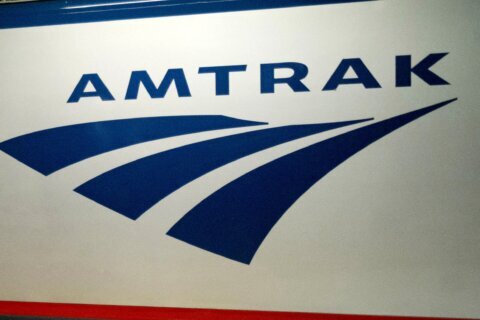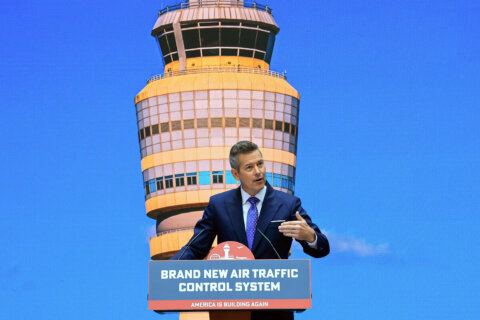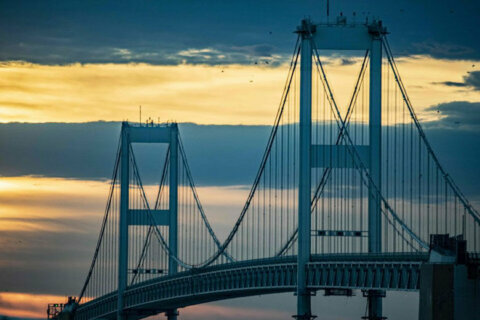WASHINGTON — It’s not going to turn pitch black in the D.C. area during this month’s solar eclipse, but enough people are expected to try to watch what’s going on that the feds are concerned about drivers.
“Most people don’t think of the Federal Highway Administration when they think of eclipses,” said spokesman Doug Hecox. “This is a driver-distraction issue.”
When the eclipse is in progress on Monday, Aug. 21, Hecox said, drivers should not pull over alongside the road and shouldn’t wear eclipse glasses while driving. Instead, plan ahead and stop somewhere to take it all in.
“Enjoy the show from a place of safety,” Hecox advised.
If you do keep moving on the road, pay close attention.
“Just because you aren’t watching it, doesn’t mean somebody else isn’t being distracted by it,” Hecox noted.
There’s great concern, Hecox said, for commercial truck drivers who might be distracted trying to glimpse the eclipse. There’s concern for cyclists and pedestrians as well.
“They too could be a victim of drivers who aren’t watching the road, but are instead watching the sun,” Hecox said.
To give you an idea of how potentially dangerous this could be: Hecox said there are 263 million drivers on the road at any given moment in the U.S. During the last coast-to-coast solar eclipse in 1918, there were only about 6 million cars in the U.S.
Another reason for drivers to be especially cautious as the light starts to dim during the eclipse: Most serious pedestrian collisions occur around dusk into late evening when light starts to fade.
There is also an uptick in pedestrian collisions in fall after daylight saving time ends since the latter hours of the evening rush hour are suddenly spent in the dark.
The jury’s still out on how traffic will flow during the hours leading up to the eclipse but some researchers are drawing comparisons to traffic delays before large sports events. Before a Redskins game, for instance, traffic often slows in many places nowhere near FedEx Field as fans get situated.
In the hours before the eclipse, there could be similar delays as people head to parks and myriad other destinations.
As for pullovers, it’s probably inevitable that more drivers will pull over on roadsides and shoulders to watch. Other drivers will have to hope the drivers passing by have their eyes focused more on the road and less on what’s happening in the sky.
WTOP’s Dave Dildine contributed to this report.








